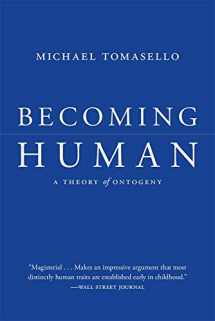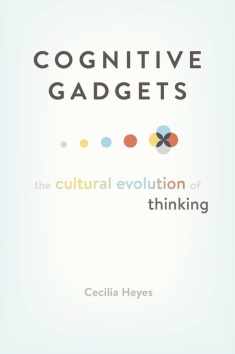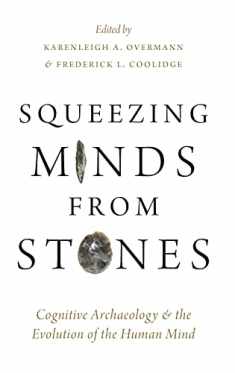
Becoming Human: A Theory of Ontogeny
Book details
Summary
Description
Review
“Magisterial―merging primatology, developmental psychology, cognitive psychology and evolution…Makes an impressive argument that most distinctly human traits are established early in childhood and that the general chronology in which these traits appear can at least―and at last―be identified.”―David P. Barash, Wall Street Journal
“How does human psychological growth run in the first seven years, in particular how does it instill ‘culture’ in us? Tomasello addresses this question…by comparing us to chimpanzees and bonobos. Most of all, how does the capacity for shared intentionality and self-regulation evolve in people? This is a very thoughtful and also important book.”―Tyler Cowen, Marginal Revolution
“An empirically rich view of human uniqueness that is not only informed by developmental psychology but also by cross-cultural and comparative research. Becoming Human is a theory of human origins, but it is first and foremost an attempt to understand the constant unfolding of our nature.”―Ivan Gonzalez‐Cabrera, History and Philosophy of the Life Sciences
“Theoretically daring, experimentally ingenious, and astonishingly generative, Becoming Human squarely tackles the abiding question of what makes us human.”―Susan Gelman, University of Michigan
“This grand synthesis of three decades of collaborative research at the Max Planck Institute in Leipzig is a landmark in our understanding of human development.”―Paul Harris, Harvard University
“Becoming Human is destined to become a classic. Anyone who is interested in cognitive science, child development, human evolution, or comparative psychology should read this book. It surely would have provoked a letter from Darwin―an intellectual ancestor, along with Vygotsky, of this scientific masterpiece.”―Andrew Meltzoff, University of Washington
“This is a must-read from a thinker who has had a major hand in our current understanding of the genealogy of human uniqueness and character.”―Henry Wellman, University of Michigan
Winner of the William James Book Award
Winner of the Eleanor Maccoby Book Award
“A landmark in our understanding of human development.”
―Paul Harris, author of Trusting What You’re Told
“Magisterial…Makes an impressive argument that most distinctly human traits are established early in childhood and that the general chronology in which these traits appear can…be identified.”
―Wall Street Journal
Virtually all theories of how humans have become such a distinctive species focus on evolution. Becoming Human looks instead to development and reveals how those things that make us unique are constructed during the first seven years of a child’s life.
In this groundbreaking work, Michael Tomasello draws from three decades of experimental research with chimpanzees, bonobos, and children to propose a new framework for psychological growth between birth and seven years of age. He identifies eight pathways that differentiate humans from their primate relatives: social cognition, communication, cultural learning, cooperative thinking, collaboration, prosociality, social norms, and moral identity. In each of these, great apes possess rudimentary abilities, but the maturation of humans’ evolved capacities for shared intentionality transform these abilities into uniquely human cognition and sociality.
“How does human psychological growth run in the first seven years, in particular how does it instill ‘culture’ in us? …Most of all, how does the capacity for shared intentionality and self-regulation evolve in people? This is a very thoughtful and also important book.”
―Tyler Cowen, Marginal Revolution
“Theoretically daring and experimentally ingenious, Becoming Human squarely tackles the abiding question of what makes us human.”
―Susan Gelman
“Destined to become a classic. Anyone who is interested in cognitive science, child development, human evolution, or comparative psychology should read this book.”
―Andrew Meltzoff


We would LOVE it if you could help us and other readers by reviewing the book
Book review





